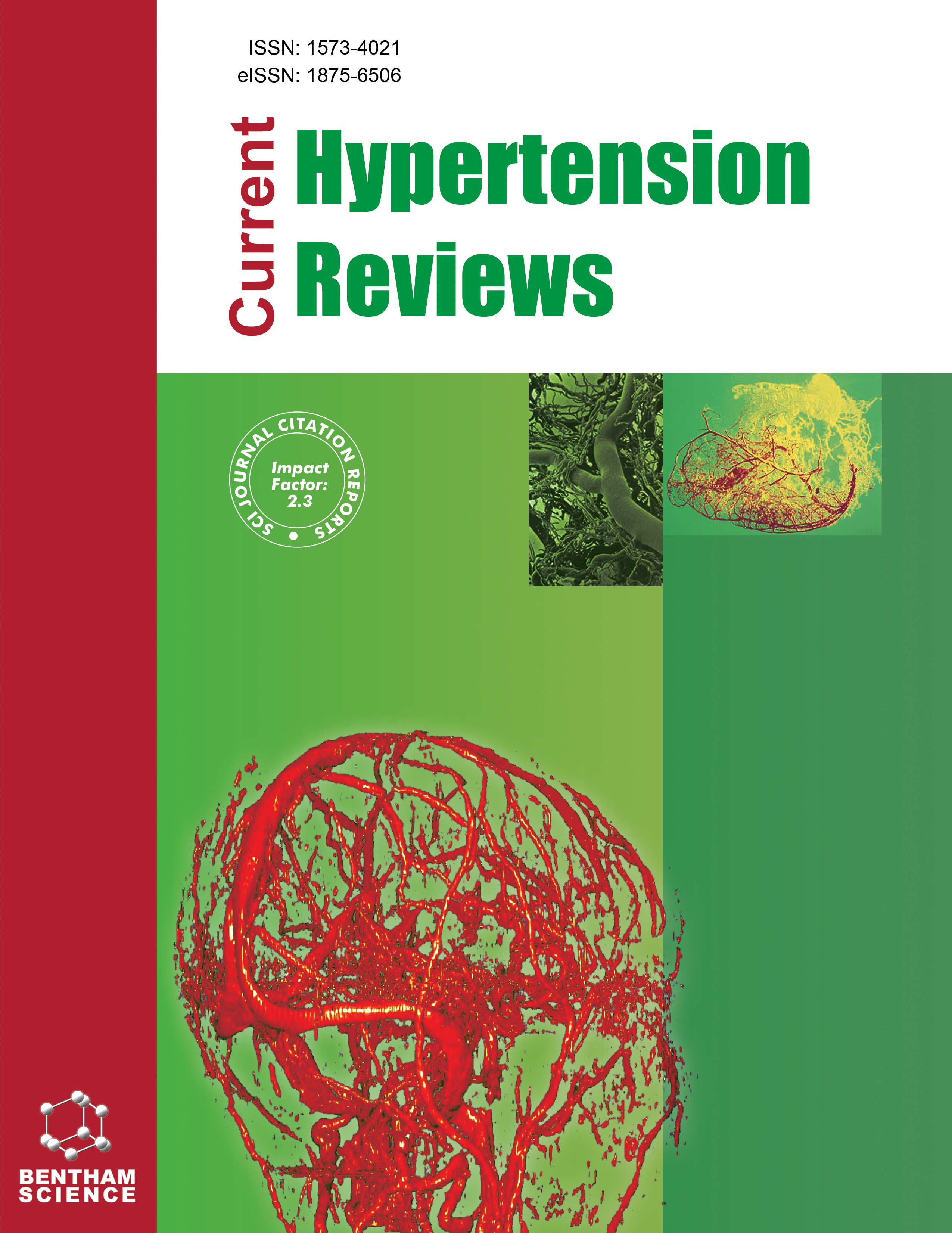-
s Genomics and Pharmacogenomics of Salt-sensitive Hypertension
- Source: Current Hypertension Reviews, Volume 11, Issue 1, Apr 2015, p. 49 - 56
-
- 01 Apr 2015
Abstract
Salt sensitivity is estimated to be present in 51% of the hypertensive and 26% of the normotensive populations. The individual blood pressure response to salt is heterogeneous and possibly related to inherited susceptibility. Although the mechanisms underlying salt sensitivity are complex and not well understood, genetics can help to determine the blood response to salt intake. So far only a few genes have been found to be associated with salt-sensitive hypertension using candidate gene association studies. The kidney is critical to overall fluid and electrolyte balance and long-term regulation of blood pressure. Thus, the pathogenesis of salt sensitivity must involve a derangement in renal NaCl handling: an inability to decrease renal sodium transport and increase sodium excretion in the face of an increase in NaCl load that could be caused by aberrant counter-regulatory natriuretic/antinatriuretic pathways. We review here the literature regarding the gene variants associated with salt-sensitive hypertension and how the presence of these gene variants influences the response to antihypertensive therapy.


